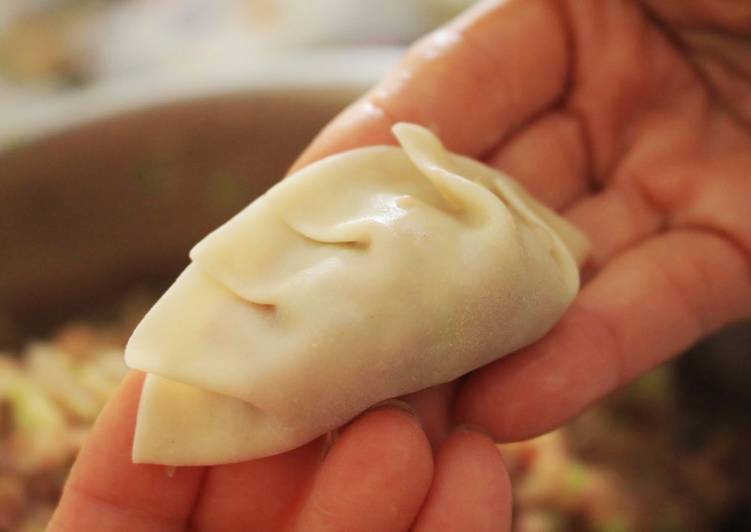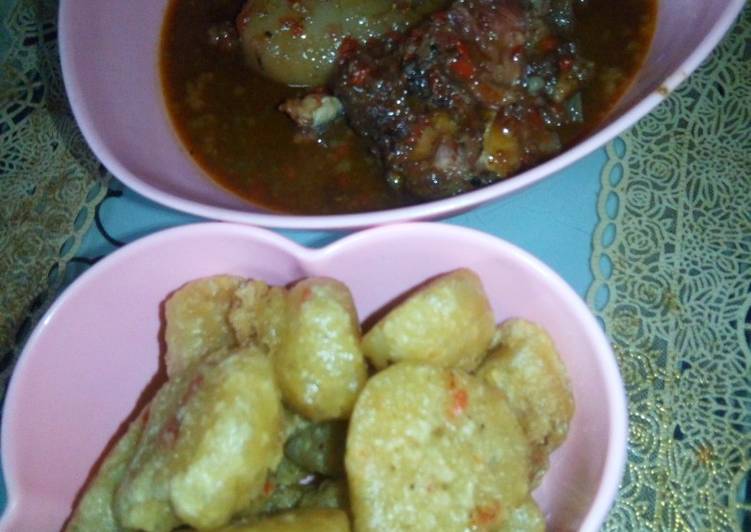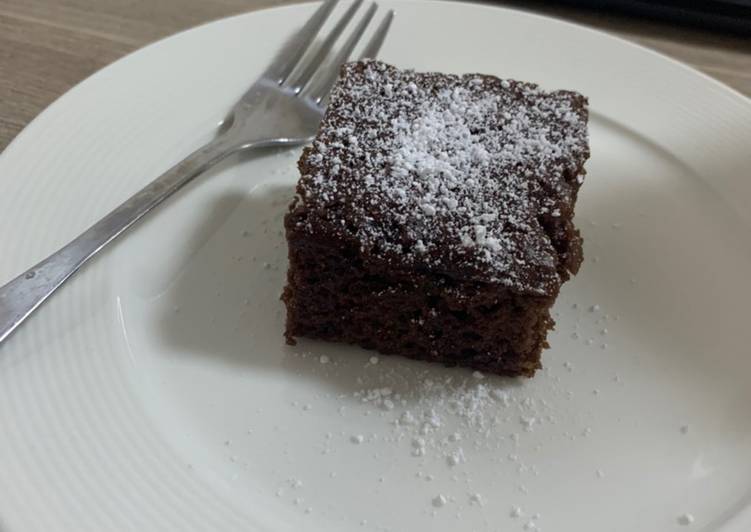
Hey everyone, it’s me again, Dan, welcome to my recipe page. Today, I’m gonna show you how to prepare a distinctive dish, my mom's mandoo aka mandu aka korean style dumplings. It is one of my favorites. For mine, I’m gonna make it a bit tasty. This is gonna smell and look delicious.
This is the first time I used chicken breasts instead of pork/beef, and it was a huge success with my family. Korean dumplings, known as mandoo or mandu, are a traditional, easy-to-make traditional food that can be prepared in large quantities in advance and stored in the These little dumplings are stuffed with a mixture of meat and/or vegetables and can be deep-fried, boiled, pan-fried or baked in the oven. a Korean mom's home cooking. Learn how to make Korean dumplings (mandu) with this easy-to-follow recipe!
My Mom's Mandoo aka Mandu aka Korean Style Dumplings is one of the most popular of recent trending meals in the world. It’s easy, it’s quick, it tastes yummy. It is appreciated by millions every day. They’re fine and they look wonderful. My Mom's Mandoo aka Mandu aka Korean Style Dumplings is something that I’ve loved my whole life.
To get started with this particular recipe, we have to prepare a few ingredients. You can have my mom's mandoo aka mandu aka korean style dumplings using 12 ingredients and 10 steps. Here is how you cook it.
The ingredients needed to make My Mom's Mandoo aka Mandu aka Korean Style Dumplings:
- Take 4-5 packages wonton/gyoza skins (they usually come in packs of about 50 each)
- Prepare water for sealing the wrappers
- Prepare For the filling:
- Prepare 2 pounds ground meat (I like ground pork, but you can use any combination of pork, beef and chicken)
- Prepare 3.5 cups blanched and finely minced green cabbage, pressed or squeezed to remove all excess liquid (about 2 med. heads)
- Prepare 2.5 cups finely minced onion (3 medium onions should do it, the sweeter the better)
- Prepare 2 cups boiled dangmyun noodles chopped into roughly 1/4" long pieces (you can substitute well drained shirataki noodles)
- Make ready 1/4 cup + 2 Tablespoons soy sauce
- Take 2 Tablespoons toasted sesame oil
- Prepare 2 teaspoons sugar
- Take 1 teaspoon kosher salt
- Prepare 1 teaspoon black pepper
Today I'm going to show you a delicious, easy recipe for making Korean dumplings (aka mandu: 만두). Dumplings are made by stuffing fillings into thinly rolled wrappers created through kneading dough and sealing the edges. How to Make Korean Dumplings Mandoo Mandu.wmv. FROZEN VEGAN DUMPLING aka "MANDU" • MUKBANG.
Steps to make My Mom's Mandoo aka Mandu aka Korean Style Dumplings:
- Combine all filling ingredients in a large mixing bowl and work them together with your hands until they are thoroughly and evenly combined. (Do yourself a favor and take the meat out of the fridge a good 30 to 45 minutes before you mix it, otherwise the process can get uncomfortably cold for your fingers.)
- Prepare a couple of large trays or cookie sheets very lightly dusted with corn or potato starch or flour OR lined with wax or parchment paper. This will keep your mandoo from sticking to the surface.
- Open one packet of wrappers at a time, leaving the rest in the fridge.
- Take one wrapper, place one Tablespoon of filling in the center, and wet the top half of the wrapper periphery with water.
- Loosely fold the wrapper exactly in half over the filling, then, gently working from the center out so as not to tear the wrapper, make sure to remove any air pockets before sealing the wrapper. Once you've sealed the wrapper, take the thumb and forefinger and working from one side to another, pinch the periphery of the wrapper to give it an extra tight seal.
- If you already know how to crimp dumplings and would like to crimp the mandoo, just about any crimping method works. If you're inexperienced and would like some kind of crimp, you can always crimp the periphery by pressing all along it with the back of a fork.
- STEAMING: If steaming, make sure the water comes up to a steady but gentle boil & stays there for 3 minutes or so before placing the mandoo in the steamer. If steamer has large holes, line it with a cheesecloth so the mandoo doesn't get soggy. First couple of batches take about 5 minutes, the subsequent ones about 4 as steam gets hotter. Remember to re-up the water level every couple of batches & always let it come back up to a steady but gentle boil for a while first before putting mandoo in.
- Once they're steamed, you can either eat them just like that, or further pan fry them in a well oiled pan for a little bit of that outer chewy crunch you get with this two pronged cooking method. (This is my favorite way to enjoy them.) If you'd like to save some of the steamed mandoo for use in soup, cool it completely, then freeze completely, in a single layer, uncovered, on a sheet pan or plate or whatever fits in your freezer for at least 3 or 4 hours before placing them in a freezer bag.
- DEEP FRYING: Get your oil between 360 and 370F degrees and deep fry 7 or 8 at a time (you don't want to crowd the vessel), for about 7 or 8 minutes total, flipping occasionally to ensure even browning. Make sure to have a paper towel lined plate or rack ready to drain the cooked mandoo. How to know if your oil is ready to fry without a thermometer? Throw a little flour or piece of wrapper in the oil and if it immediately and gently sizzles and bubbles, it's ready.
- PAN-FRY & STEAM METHOD (my personal fave): Preheat a well oiled fry pan to just higher than medium, pan-fry 7 or 8 potstickers at a time on each side until they get a dark golden brown crust on them (1.5 to 2 mins/side), then turn the heat up to medium high, add 2 to 3 Tablespoons of water, cover completely, and cook for another 3 to 4 minutes until all the water has evaporated. The frying process gives you a deliciously crunchy crust, and the steam ensures that the filling gets cooked through.
Jjin mandu, or Korean style steamed dumpling filled with a mixture of ingredients including ground pork, kimchi, vegetables, cellophane noodles. My mom used to enslave my sister and me to make these by the thousands. Plump dumplings neatly lined up on plates and trays covered every surface of the kitchen. I used to only eat the skins, shaking out the meaty insides for my sister. As I got older, I learned to savor those juicy gems as well.
So that’s going to wrap this up for this exceptional food my mom's mandoo aka mandu aka korean style dumplings recipe. Thank you very much for your time. I am confident that you will make this at home. There is gonna be more interesting food at home recipes coming up. Don’t forget to save this page in your browser, and share it to your loved ones, friends and colleague. Thanks again for reading. Go on get cooking!

